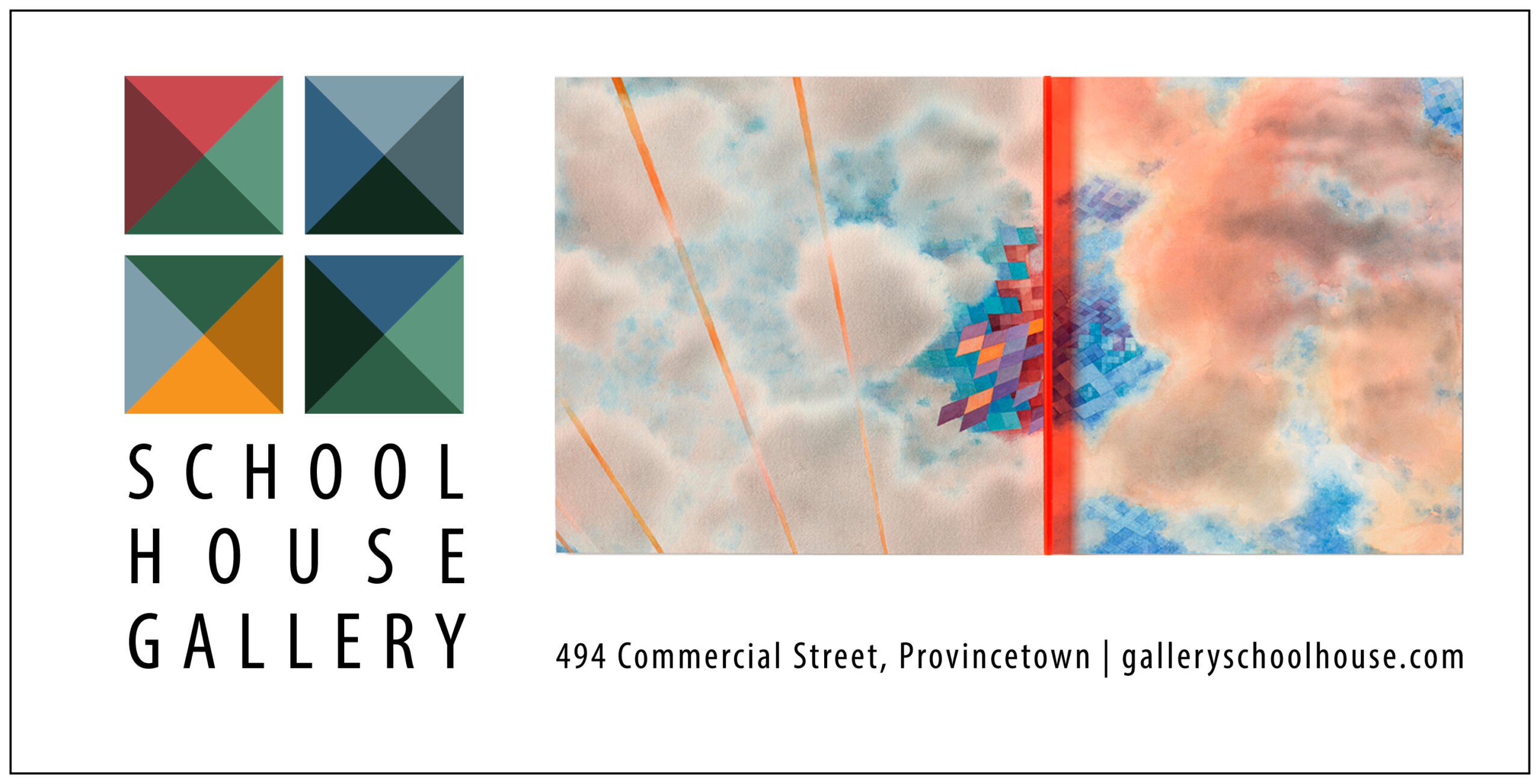I’ve been finding it difficult to write about Provincetown. This is, in part, because there already exists so much writing about the place. The territory is already charted. This town has long exerted a power that compels people to record it — beautiful places have a way of doing that.
“Beauty brings copies of itself into being,” Elaine Scarry writes in On Beauty and Being Just. “It makes us draw it, take photographs of it, or describe it to other people.” Scarry goes on to describe a cycle of creativity wherein beautiful art begets more beautiful art: in painting, architecture, and certainly in writing. As she says, “The generation is unceasing.”
This is all well and good until things get repetitive. Clichés abound in literature about Provincetown: the dunes, the Cape light, the freedom to — yes, queen! — express yourself. It’s difficult to not become tongue-twisted by these tropes. If you’re enamored of this place like I am, it’s difficult not to sound gushy and trite. If you’re critical of this place like I also am, it’s difficult to not sound like a snob, here to slash Provincetown’s totems just to prove that you, disillusioned and perceptive little you, are above cliché.
Truthfully, though, I’ve been finding it difficult to write about anything at all lately because my brain is broken. I used to have interesting ideas, but no more. I blame this on Provincetown summer. I wasted hours, days, weeks in July and August thinking about beauty: not in the Elaine Scarry sense where you look up at the sky and contemplate the meaning of life but in a much more superficial way — familiar to many of us, I’m sure — where you look down at the scale and contemplate death. This is not beauty in a beautiful way, but beauty in an ugly way.
My thoughts have completely flown away from more worthwhile pursuits. Instead, I’ve been thinking about the most banal and boring thing possible: my own appearance. I’ve been quibbling with my face shape, fussing with my hair, skipping lunch, pinching at my paunch, literally gazing at my own navel, all because I’ve become the cliché kind of 24-year-old gay boy whose main concern in life is whether other gay men find him hot.
This started around Circuit Week, of course. If you’re lucky (and heterosexual) enough to not know what Circuit Week is, it’s a term — often used as an epithet by locals — to describe the week of July 4th in Provincetown with its impossibly attractive and in-shape crowd of gay male tourists in their 20s and 30s, disposable incomes and abs and bitchy side-eyes galore, who pour into town for the week to bask in the company of their identically attractive peers. (The “circuit” refers to the endless round of parties and themed events all over the world around which these gays arrange their social calendars.)
“It’s a place that makes you know your place,” wrote E. Alex Jung of Fire Island in New York magazine. He could have just as easily been describing Provincetown during Circuit Week. For seven days, the pecking order is crystal clear, determined entirely by what’s on the outside. It’s hard not to stare in the mirror and stick on a running bib for this race to nowhere.
“This town makes me think inordinately about my appearance,” I wrote in my diary on July 1, right on schedule. “It’s difficult to think or talk or write about Provincetown and not bring up body image issues.” This may not be your experience of this town, to which I say: good for you. But for many of us, this underbelly of beauty in Provincetown, at least during some weeks in the summer, can be overwhelming, the darkness behind the cliché.
Of course, this isn’t just about Provincetown but about being a gay man more generally. In an essay published in T: The New York Times Style Magazine in early August, Mark Harris wrote that to be a gay man is to inhabit “an entire universe of body-image issues.” Harris is never reduced to a state of bitterness over this, nor does he dole out empty platitudes about self-love. He is, instead, resigned: “It’s not a deficiency or a failure of maturity to want to feel attractive, to want to be attractive, to want to be seen as attractive.”
Isn’t it though? To want to be attractive is, like anything, innocuous in moderation. But, in the context Harris is writing about, in a context like Circuit Week, where that desire metastasizes into something more like a community mandate, this want feels like a colossal waste of time, diverting energy away from that cycle of creativity. I’d like to wrest my broken brain back from that emptiness.
In September, so far, I’ve been able to do that, incrementally. I’ve been gazing less at my navel, and my thoughts have begun to perch on the branches of worthwhile matters again. I finally found the time to fix my bike; the other day, I headed off Commercial Street, where steroid-generated automatons haunted me in July and August, to the Beech Forest, where a flock of birds brushed past me, all of them completely unaware of their good looks.
And the other night at a dance party that felt like the epitome of “townie summer” — that time after Labor Day that might as well be an antonym for Circuit Week — where I was surrounded by a community that, over the past four years, I’ve come to hold dear, I caught myself having no thoughts at all, nothing ugly and nothing profound, just the thrum of good music and the pulse of other dancing bodies. It was something better than beauty: a completely free feeling, my favorite Provincetown cliché of all.



